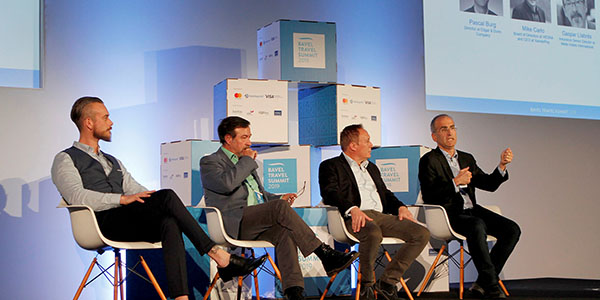Frictions between Sales and Finance departments is known to be one the oldest in business history. While one’s goal is to maximize conversions and sell as much as possible and do not pay attention to resources, the other’s focus is in the company’s solvency and look after expenses and income in each operation.
In the travel sector, like in other highly transactional sectors, these discrepancies gain importance when talking about hiring B2B payments methods. Because of the various actors involved in the process — hotels, travel agencies, PMSs, CRSs, GDSs, Tour Operators, etc — as well as the different aspects of the transactions — commissions, discounts, payment time, exchange rates, etc — choosing the right payment method is crucial to keep the company’s cash flow.
In order to debate about it, representatives of both departments gather together to talk about the different B2B payment methods most used nowadays and how these impact the companies. The debate took place during the baVel Travel Summit, reference event in the travel sector held in Barcelona last may.
The different profiles provided a wide view of the travel industry where both departments agreed that one of the biggest challenges is to compensate the cash flow between the different actors involved. According to Peter Dorner, President at New World Travel, a tour operator can have more than 3 third parties involved from the time the customer pays and the travel companies wanting to receive the money.
To Dorner, finding the balance between clients, hotels and banks is the most difficult challenge. And, especially, when hotels offer different rates. “We have flexible rates, prepayments rates, closed rates and specific rates depending on the policy. But, in the case of prepayment rates, we want to have the money, the same day the reservation has been confirmed”, explained Olga Delgado, Director of Global e-Commerce at Melià Hotels International.
Furthermore, there are the differences between profiles in the sector when hiring payment methods. While a Tour Operator does not include the payment method in the equation when signing a contract with a third party service, a hotel such as Melià Hotels International defines everything in the contract. “Sales and Finance need to be aligned. The sales team to know what kind of payment methods exist on the market and their conditions and finance need to know the strategy and what we are going to achieve if signing the contract with a specific OTA”, added Delgado.
From the financial point of view, Gaspar Llabrés, Credit & Insurance Senior Director at Melià Hotels International, affirmed: “we have to take in mind the security to get paid and, especially, fraud prevention. We focus on the cost that will represent to accept a payment method”. According to Llabrés, conversions are important, but it is necessary to secure the payments to make sure they will be paid and not cancelled at the last minute.
Because of this, Melià Hotels International started to convert their non-refundable rates into non-refundable pre-payments rates so the properties can have the money immediately in order to prevent massive cancellations.
Because of all the fluctuations of the sector, the Sales and Finance departments need to be aligned and coordinated. On one hand, the sales department need to focus on conversion but taking into consideration security and fraud prevention, whereas the finance department need to keep updated on the commercial strategy of the company and their long-term objectives. As Gaspar Llabrés said, “it is not a matter of education but complicity between departments”.
If you missed the baVel Travel Summit, you can check out this summary:











